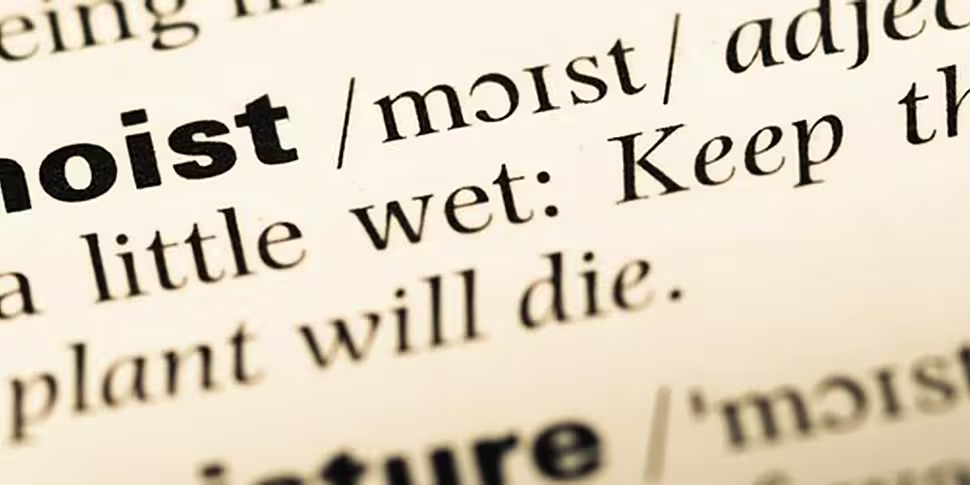Maybe it’s phlegm? That kind of mucous is rarely easy for anyone to swallow, so to speak. It could be smear? A smear campaign rarely takes any prisoners. Secrete, too, has a place on the list, topped only my its nominalised form, secretion. But moist is the master. Moist, meaning wet or well-irrigated, from the Old French moiste, meaning “damp, wet, soaked”, or the Vulgar Latin muscidus, meaning mouldy. Moist, the English-speaking world’s most hated word, and no-one knows why.
Oberlin College psychologist Paul Thibodeau, though, has a theory as to why large swathes of Anglophones scream internally at moistened mumbles. Writing in his paper A Moist Crevice for Word Aversion in the online journal PLoS One, he posits the following: we hate the word moist because it conjures up mental images of the moistest parts of ourselves, triggering our disgust reflex by reminding us of the many ways our bodies moisten.
[GIPHY]
Reaching out to people online, Thibodeau polled a group of volunteers, asking them to rank a number of words, moist included, under a number of scales, such as arousal (“How exciting was the word?” and valence (“How positive or negative is the word?”). He also asked the participants to say why they found the word distasteful, and in what way – is it the meaning or even just the sound of it coming off of someone’s lips?
Perhaps unsurprisingly, the most frequent answer was the link between the word and its significant sexual overtones, although the people with the strongest aversion to it hate the sound even more by the sound than meaning. But crunching the numbers on the data, Thibodeau’s research failed to reach any kind of satisfactory conclusion – those who hate the sound didn’t show anywhere near the same distaste for words like hoist and foist.
There was a discernible link, however, between those who hate moist and those hating its synonyms (damp) or words related to bodily functions.
[GIPHY]
Instead, the much-maligned moist might merely be a victim of the Internet’s favourite social phenomenon – memes. After finding no conclusive scientific data to back it up, the study took the very unscientific approach of showing one group of participants a video produced by People Magazine called These Sexy Men Make the Worst Word Sound Hot. The control group was exposed to, perhaps, the most palatable moistness, a video of people using the word to describe cake.
Despite their best efforts, the likes of Ed Sheeran and Matt LeBlanc could not muster a moist sexy enough to not disturb the group, with the people who watched the first video showing considerably more distaste for the word. That’s the way the cookie crumbles.
As such, the conclusions reached at the end of the study suggest that the lexical link to bodily fluids and functions paints moist in a bad light, but that there is also an intense social link.
“Disgust is adaptive,” Thibodeau explains. “If we didn’t have an instinct to run away from vomit and diarrhoea, disease would spread more easily.
“But the present studies suggest that, when it comes to the disgust that is elicited by words like 'moist,' there is an important cultural component – the symbols we use to communicate with one another can become contaminated and elicit disgust by virtue of their association with bodily functions,” he adds.
Listen back to Sean Moncrieff's interview with Paul Thibodeau below:









